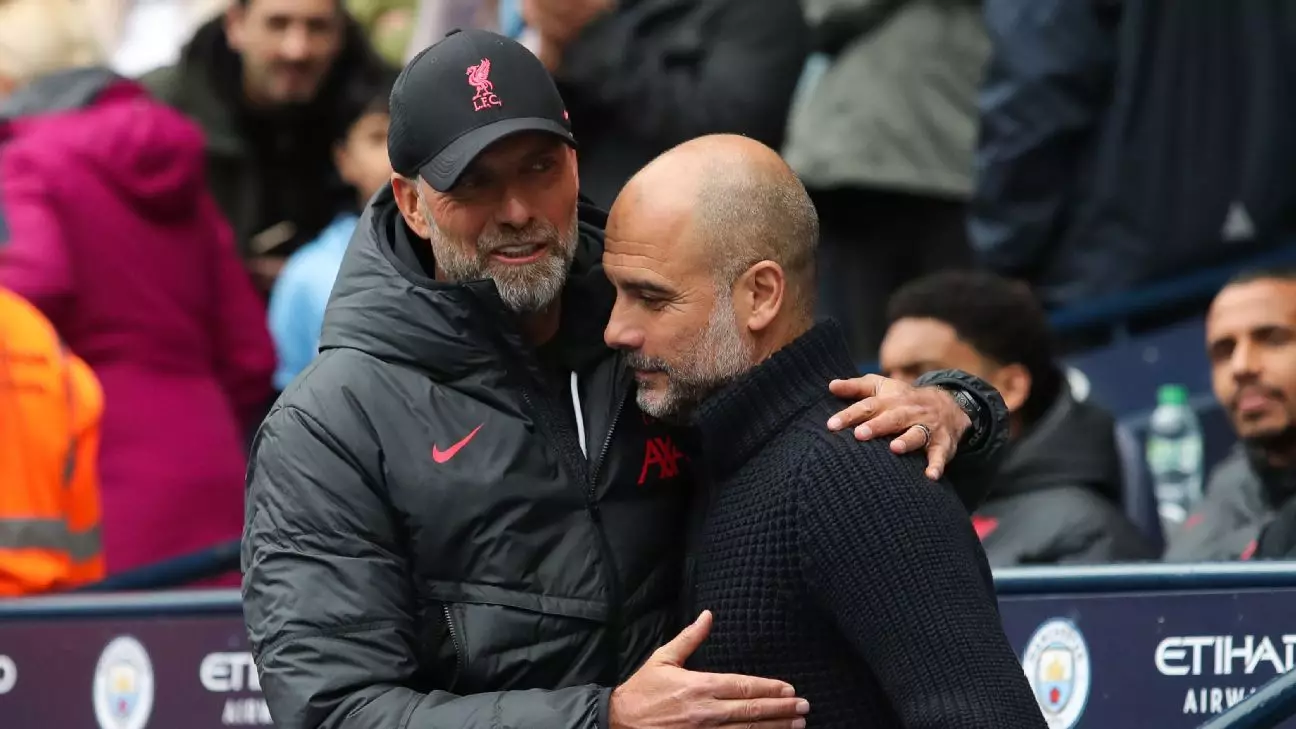In the volatile world of football, financial regulations have emerged as a contentious arena, particularly highlighted by the ongoing situation surrounding Manchester City. The Premier League’s referral of Manchester City to an independent commission over 115 alleged breaches of financial regulations dating back from 2009 to 2018 has stirred a significant amount of conversation. The outcomes of such an investigation could reshape the landscape of the league and lead to monumental consequences for clubs involved, especially if they are found guilty.
Former Liverpool manager Jürgen Klopp, now the head of global soccer for Red Bull, expressed a mix of excitement and disbelief regarding the potential for Manchester City’s titles to be stripped should they be found in violation of the rules. The prospect of such a development has ignited renewed discussions about integrity and accountability in the football world. Historically, the temptation to overlook financial misconduct for short-term success has been a recurring theme. Teams like Liverpool, who have been perennial contenders yet fell short against City, might see a glimmer of hope in the strict enforcement of these regulations.
In what can only be described as a tongue-in-cheek yet revealing remark, Klopp suggested that he would host a party in Mallorca to celebrate if the commission ruled against City and revoked their titles. This response unveils not just a personal preference for celebration in the sun but also serves to highlight the emotional stakes involved for fans and players alike. For Klopp and Liverpool supporters, the prospect of reclaiming what they perceive as unearned titles would serve as a testament to their resilience and a vindication of their efforts in pursuing fair competition over the years.
Klopp’s revelation that he would gladly buy beer for his friends should this outcome materialize emphasizes the camaraderie that exists within football fandom. His lighthearted tone contrasts with the serious nature of the legal proceedings but underscores a broader truth: for many, football is as much about loyalty and community as it is about competitive integrity.
While Klopp’s comments about Manchester City dominate headlines, another pressing issue looms for Liverpool—the uncertain futures of key players, including Trent Alexander-Arnold, Mohamed Salah, and Virgil van Dijk, all of whom will see their contracts expire at the end of the season. Klopp’s humorous yet poignant reflection on his departure from the managerial role, and the challenges facing his successor amidst these contract negotiations, reveals the complexities of maintaining a competitive squad in today’s football landscape.
He expressed a sincere desire for all three players to extend their contracts, highlighting Salah’s status as one of Liverpool’s finest strikers in the modern era. Klopp’s admiration for Salah is evident, yet his inability to actively participate in negotiations represents the complexities that coaches face in an increasingly corporate and performance-driven environment. The uncertainty surrounding these players’ tenures could have lasting ramifications on Liverpool’s competitive stature in the seasons to come.
In the same breath, Klopp did not shy away from addressing what he perceives as the grueling nature of modern football schedules. Protestations against tournaments like the FIFA Club World Cup and calls for a reduction in the number of league games suggest an urgency for change in how football is organized at the highest levels. His assertion that the winner of such a tournament would be the “poorest winner of all time” due to the lack of proper rest for players illuminates an ongoing discourse about player welfare in an era of relentless competition.
The calendar is indeed packed, and many teams face mounting injury lists as a consequence of the overexertion of athletes. Klopp’s insights advocate for a more sensible approach to football governance, with reducing games and prioritizing player health at the forefront. An ideal scenario would lead to a realignment of priorities, focusing not merely on profits and matches but ensuring the sustainability of the sport for fans and players alike.
Jürgen Klopp’s recent comments not only illustrate the immediate ramifications of financial mismanagement among top clubs but also evoke a deeper contemplation of what fairness, integrity, and sustainability should mean within the beautiful game. The repercussions stemming from Manchester City’s long-awaited investigation may echo far beyond the League table, influencing the discourse on ethics and player welfare across football leagues worldwide.


Leave a Reply